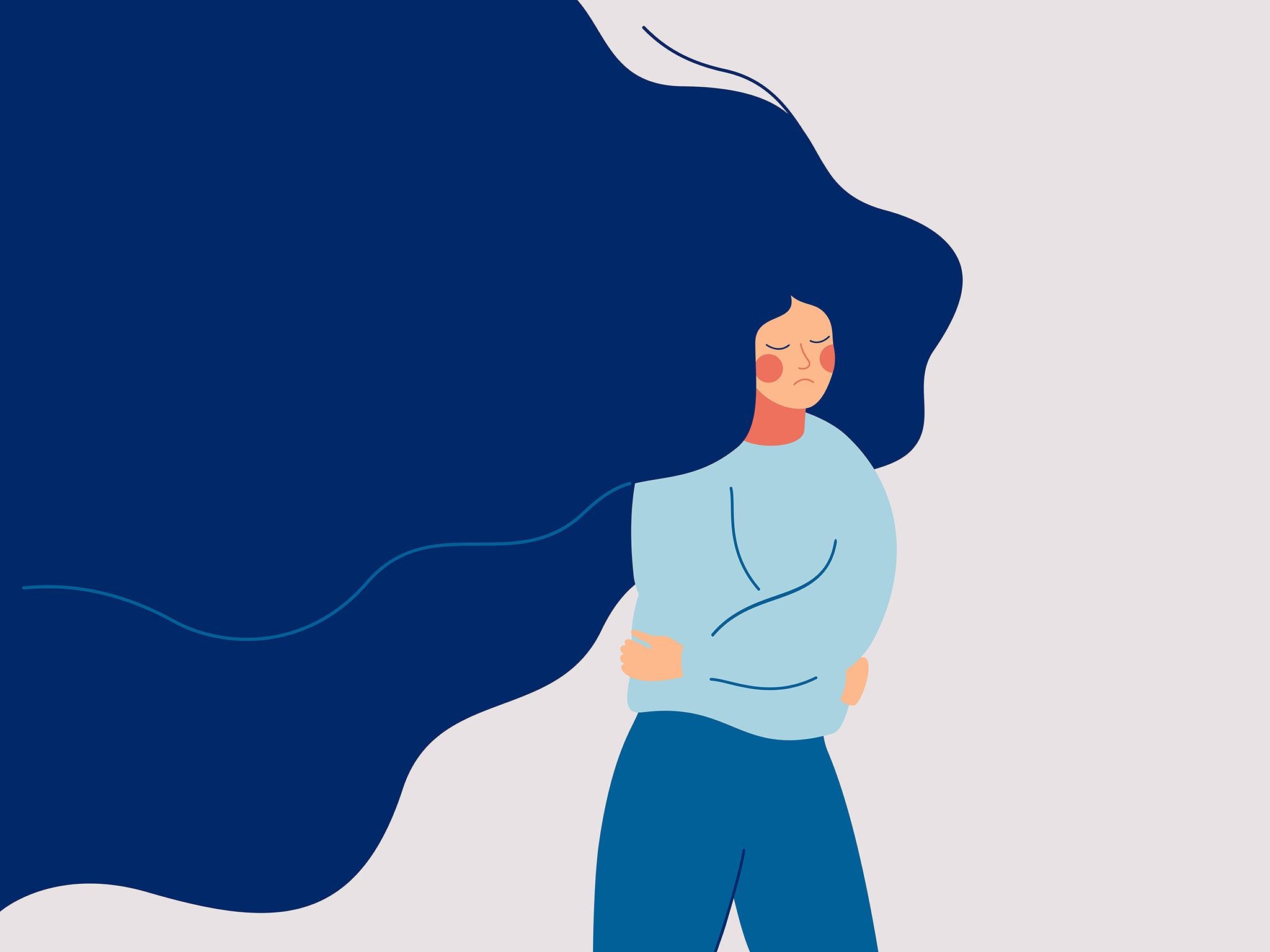The gender pain gap
For many women with chronic pelvic pain, a lack of funding and research has resulted in a dearth of treatment options. Rachael Revesz speaks to other sufferers about the methods helping to manage, alleviate or, in some cases, cure their symptoms

During a coffee break at a pelvic pain conference in Leeds, I perused the stands. Chemical-free menstrual pads, aloe vera supplements, dilators, lubricant. I was there because I have had chronic pelvic pain for 12 years, and I’ve seen countless doctors, physios and other specialists. I’ve been offered antidepressants, acupuncture, X-rays, painkillers, surgery. At the conference, I saw lifestyle changes and eco-friendly products, not radical solutions.
Small talk between attendees was focused on sharing symptoms. The woman sat beside me first got pain aged 18, like me. Her condition was worse when she sat down, but mine was exacerbated by movement, so I stopped exercising in May. She was wearing jeans – I’d opted for loose trousers because the pressure on my crotch can be uncomfortable. She was 34, and I am 30. My main thought was: I don’t want to go through four more years of this. And I shouldn’t have to.
After a doctor gave a speech at the conference, there was a Q&A. I asked about having children. Another asked hopefully about a new treatment – a drug called gabapentin, in the form of a gel. He told her there is little evidence behind it, and I saw her face drop. I could see she’d been banking on that. Eighteen years after Hannah Walter* was born with a septate hymen – where an extra band of tissue grows across the small opening in the hymen – she was taken into surgery. The doctors told her there were two surgical options: one was quicker and cheaper, and she would only need a local anaesthetic. If she didn’t have surgery, Hannah ran the risk of her hymen splitting her reproductive organs in two.
Subscribe to Independent Premium to bookmark this article
Want to bookmark your favourite articles and stories to read or reference later? Start your Independent Premium subscription today.
Join our commenting forum
Join thought-provoking conversations, follow other Independent readers and see their replies